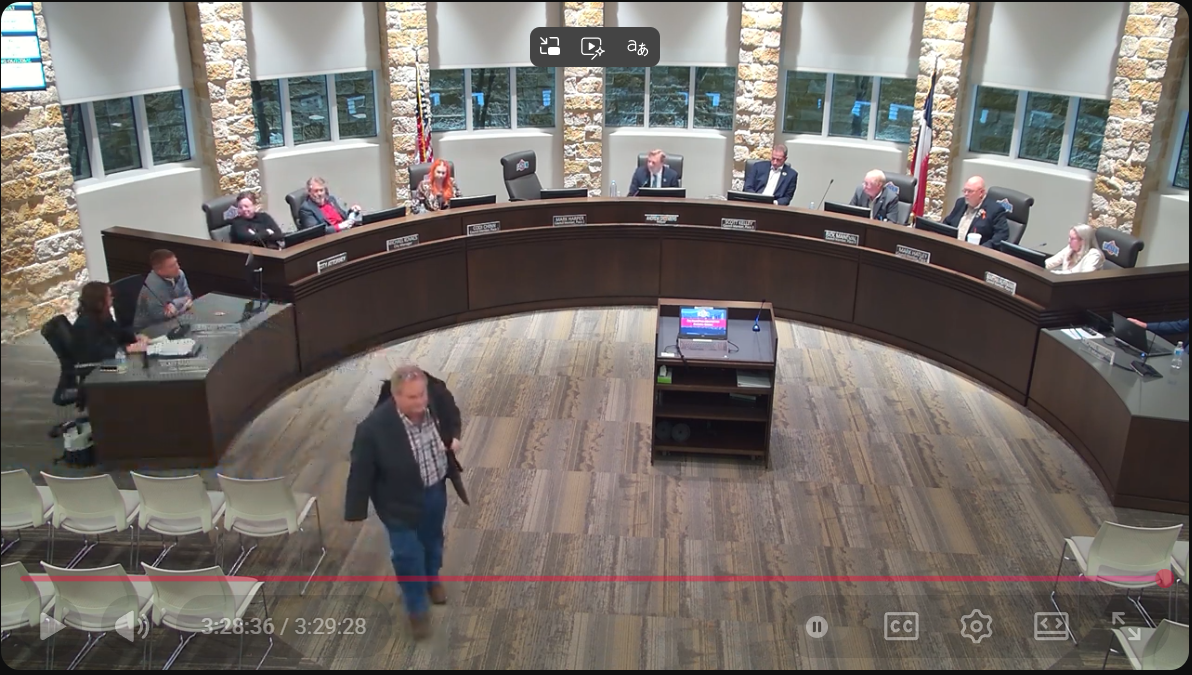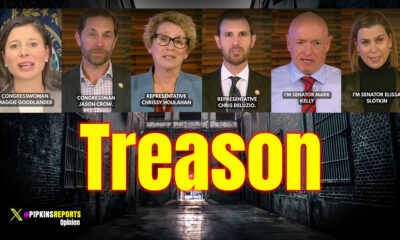The Deep State’s Endgame: Tuesday, November 5
Kamala Harris has now been installed as the Democratic candidate for the 2024 presidential election, effectively replacing Joe Biden without a single vote cast by the American people. In normal times, this usurp of democracy would send shockwaves through the political landscape, raising questions about the integrity of the democratic process and the lengths to which the deep state will go to maintain control.
The Quiet Removal of Biden
The signs were there for months, if not years. Joe Biden, already struggling under the weight of his responsibilities as president, had become an increasing liability for the Democratic Party. Whispers about his cognitive decline had grown louder, and public appearances that once showcased a capable leader had turned into fodder for criticism and doubt. But once the decline was presented in full view of the American public at the debate with Donald Trump, the power brokers knew that the people would not accept the delusion of another Biden victory … the gig was up. So the decision was made behind closed doors to remove Biden from the ballot.
The official story presented by the party is one of a natural and necessary transition—a passing of the torch to the next generation of leadership. But the reality is far more concerning. Biden’s removal from the 2024 ticket was not the result of a fair and open democratic process. Instead, it was orchestrated by party elites and deep state operatives who feared that a Biden campaign, in light of his declining health and public perception, would be an insurmountable obstacle to retaining power. Presenting a Trump victory would become more important than maintaining any perception of democracy.
Kamala Harris: The Deep State’s Choice
With Biden out of the picture, Kamala Harris was swiftly installed as the Democratic candidate. This decision was made for a variety of reasons, most importantly, money. They needed a pseudo-legitimate excuse to take the campaign money from Biden. Choosing Harris would make it an easier sell to the public. Harris, who has consistently polled lower than Biden among key demographics, was not chosen by the people but by a select group of power brokers who believe she is the key to continuing their control over the nation’s future.
Harris’s installation as the candidate was the result of months of careful planning and behind-the-scenes maneuvering. The deep state, recognizing the need for a candidate who could be more easily controlled and who would continue to advance its agenda, saw Harris as the perfect figurehead. While the Democrat party needed her to secure the money. With her in place, they could ensure that the policies and strategies implemented during Biden’s presidency would continue unchallenged.
Rigging the Input, Not the Machines
In past elections, they used the real-time analytics from the voting machines to determine the number of fraudulent ballots they would need to bring in. In 2024, they will no longer concern themselves with analytics or trying to beat Trump by a “plausible” number of votes, they will simply flood the system with as many fraudulent votes as they can muster … right from the start. The goal is to preclude the possibility of Trump ever being in the lead. By controlling the flow and distribution of ballots, those behind the scenes can achieve the desired outcome without ever touching a voting machine.
This strategy involves a complex web of tactics, including the use of mail-in ballots, drop boxes, and ballot harvesting. But at the core of this approach lies a critical component: building a vast pool of potential voters whose identities can be exploited to cast fraudulent ballots.
The deep state and its allies have embarked on an aggressive campaign to expand the pool of registered voters, from which they can later draw to manufacture the ballots needed to tip the scales in their favor. This effort is far-reaching, targeting various segments of the population through tailored strategies designed to maximize registration numbers—often without the individual’s full awareness of how their information might be used.
- College Campuses: One of the prime targets for this voter registration drive is college campuses. With millions of students scattered across the country, many of whom are first-time voters, college campuses present a fertile ground for expanding the voter rolls. Registration drives on campuses are often presented as civic engagement initiatives, but behind the scenes, they serve a dual purpose. By registering students en masse, many of whom are transient and move frequently, the deep state creates a pool of voters who may be less likely to follow up on their ballots or even be aware that a ballot was cast in their name. When it’s all over, the media will report how remarkable, and exciting, that so many young people are choosing to engage in politics … but it’s all an illusion.
- Healthcare Providers and Elderly Patients: Another key tactic involves enlisting the help of doctors and healthcare providers, particularly those who care for elderly patients. These patients, many of whom may be in assisted living facilities or suffering from cognitive decline, become prime targets for voter registration. The HHS now has specific codes that Doctors must use to note that they asked their patients if they wanted to register to vote. Doctors are now encouraged to assist their patients in registering to vote, often under the guise of ensuring their voices are heard. However, once these elderly individuals are registered, their ballots can be easily manipulated or even cast without their knowledge, especially if they are no longer mentally capable of voting on their own.
- Targeting Youth Through Digital Platforms: Young people, who are more likely to engage with digital content than traditional forms of media, are another focus of the registration campaign. Through targeted ads on platforms like YouTube, TikTok, and Instagram, the deep state and its allies run campaigns that encourage young people to register to vote. These ads are often framed as non-partisan get-out-the-vote efforts, but the real goal is to flood the voter rolls with names that can later be used to generate fraudulent ballots. The transient nature of youth voters, many of whom may register in one state and move to another, creates opportunities for multiple ballots to be cast in their names across different states.
- Mass Mailings and Door-to-Door Canvassing: In addition to digital and healthcare-focused efforts, there is a concerted push to register voters through mass mailings and door-to-door canvassing. These methods, while seemingly innocuous, have the potential to generate vast numbers of registrations that can later be exploited. Canvassers, often working for non-profit organizations with ties to the deep state, are trained to encourage individuals to register, sometimes using misleading or deceptive tactics. Once registered, these voters’ information is fed into a database that can be accessed to create the ballots needed to sway the election.
Manipulating the Ballot Process
Once the pool of voters has been sufficiently expanded, the next step is sending out ballots in mass. Harvesters will then collect the ballots, fill them out, and then send them in. The result will be what appears to be an organic, legitimate set of ballots fed into the system. For the “dead people” vote, those ballots are likely to be printed and completed already, and sitting in a warehouse, ready to be fed into the system as early voting. On election night, Harris will immediately jump to the top of the results as the mail in ballots will be calculated first.
As the 2024 election approaches, the stakes could not be higher. A second Trump presidency would pose an existential threat to the deep state and its allies. With Trump back in office, the risk of exposure and dismantling of the deep state’s operations becomes all too real. For this reason, every possible measure is being taken to ensure that Kamala Harris not only wins the election but does so convincingly.
But the deep state faces a new challenge: how to secure a Harris victory in a way that doesn’t trigger widespread backlash or expose the methods used to achieve it. The removal of Biden from the ticket was a calculated risk, but it also opened the door to questions and doubts about the legitimacy of Harris’s candidacy. To counter this, the deep state is doubling down on its efforts to control the narrative and suppress any dissenting voices.
Democrats “Contingency Plan”
In the event that all attempts to manipulate the 2024 election fail and Donald Trump wins a second term, the Democrats have prepared a contingency plan that centers around invoking Section 3 of the 14th Amendment, also known as the “Insurrection Clause.” This clause disqualifies former government officials from holding office if they engaged in insurrection or rebellion after taking an oath to support the Constitution. Democrats argue that Trump’s alleged role in inciting the events of January 6, 2021, which they classify as an insurrection, makes him ineligible to serve as president again. This strategy is viewed as a last-resort effort to prevent Trump from assuming office on January 20, 2025, should he win the election.
Representative Jamie Raskin (D-Md.) has been a vocal proponent of this plan, warning that the invocation of Section 3 of the 14th Amendment on January 6, 2025, could potentially lead to civil unrest or even civil war. Raskin suggests that Trump’s actions on January 6, 2021, were a direct attempt to undermine democracy and that preventing him from returning to the White House is not only justified but necessary to protect the nation. In anticipation of the potential backlash, Raskin has called for Democratic members of Congress to be given bodyguards, highlighting the seriousness of the situation and the possible violent response from Trump supporters.
For Raskin’s plan to succeed, it would require the support of two-thirds of both the House of Representatives and the Senate. This presents a significant challenge, as achieving such a majority would necessitate substantial bipartisan cooperation, particularly from Republican members of Congress. With the current composition of Congress—212 Democrats and 220 Republicans in the House, and 47 Democrats, 4 Independents voting with Democrats, and 49 Republicans in the Senate—Raskin’s plan hinges on whether enough Republicans, particularly those labeled as “RINOs” (Republicans In Name Only), would be willing to join Democrats in disqualifying Trump.
This contingency plan has reportedly been in the works for several years, reflecting a broader strategy by some within the Democratic Party to ensure that Trump does not return to the White House under any circumstances. This approach underscores the deep divisions within the country and the lengths to which some are willing to go to prevent Trump’s re-election.
The Implications for American Democracy
As the nation heads into the 2024 election, the American people must ask themselves whether they are willing to accept a candidate chosen for them by elites, or whether they will demand a return to a system where the people’s voice truly matters. The deep state has shown its hand, and now it is up to the citizens of this country to decide what kind of future they want for themselves and for generations to come.
In the end, the 2024 election will not just be a contest between two candidates but a battle between good vs evil. The choice before the American people is not just about who will occupy the White House but whether they are willing to stand up against a system that seeks to control and manipulate them. Kamala Harris may have been installed as the candidate, but the power to determine the future still lies in the hands of the people—if they are willing to take it. The concept of being “too big to rig” is now more critical than ever. By overwhelming the system with a massive turnout of freedom-loving MAGA supporters, the American people can push back against the deep state’s efforts, ensuring that no amount of manipulation or rigging can silence their collective voice. The future of the republic depends on it.

Election
New Poll Shows Crockett, Paxton Leading Texas Senate Primary Contests

Texas Senate Primaries Show Early Leads for Crockett and Paxton
AUSTIN, Texas – A new poll released by The Texas Tribune indicates that Jasmine Crockett and Ken Paxton are leading their respective primary races for the U.S. Senate seat in Texas. The survey, published on February 9, 2026, highlights the early momentum for both candidates as they vie for their party nominations in a closely watched election cycle. The results point to strong voter recognition and support for Crockett in the Democratic primary and Paxton in the Republican primary.
The poll, conducted among likely primary voters across the state, shows Crockett holding a significant lead over her Democratic challenger James Talarico, while Paxton maintains a commanding position among Republican contenders John Cornyn & Wesley Hunt.
According to the poll, Ken Paxton leads with 38 percent of likely GOP primary voters, pulling ahead of incumbent John Cornyn, who trails at 31 percent, while Wesley Hunt remains a distant third at 17 percent. The survey indicates Paxton would hold a commanding advantage in a runoff scenario and currently outperforms Cornyn across nearly every key Republican demographic group, with Latino voters the lone exception, where Cornyn maintains a seven-point edge.
Among Democrats, the poll shows Jasmine Crockett opening a notable lead, capturing 47 percent of likely primary voters compared to 39 percent for James Talarico—a meaningful shift from earlier polling that had Talarico in the lead. While still early, the numbers suggest momentum is consolidating ahead of primaries that will determine the general election matchups.
Jasmine Crockett, a sitting U.S. Representative whose district lines were redrawn out from under her, has responded to political extinction with a desperate lurch toward the U.S. Senate. Her campaign, widely criticized as race-baiting and grievance-driven, has leaned heavily on inflaming urban Democratic turnout while cloaking thin policy substance in fashionable slogans about healthcare and “equity.”
By contrast, Ken Paxton enters the race with a long, battle-tested record as Texas Attorney General, earning fierce loyalty from conservatives for his aggressive defense of state sovereignty, constitutional limits, and successful legal challenges to federal overreach. Though relentlessly targeted by opponents, Paxton’s tenure reflects durability, clarity of purpose, and an unapologetic alignment with the voters he represents—qualities that define his standing in the contest.
The Texas U.S. Senate race draws national attention, as the state remains a critical battleground in determining the balance of power in Congress. With incumbent dynamics and shifting voter demographics at play, the primary outcomes will set the stage for a potentially contentious general election. The Texas Tribune poll serves as an initial benchmark, though voter sentiment could evolve as campaigns intensify and debates unfold in the coming weeks.
Council
Fate City Council Votes to Release Secret Recordings

Councilman Mark Harper walks out of meeting before adjournment.
FATE, TX – The Fate City Council voted late Monday night to waive deliberative privilege, opening the door to the public release of secret audio recordings that may have driven a recall election against Councilwoman Codi Chinn. The decision came after hours of public criticism, procedural friction, and a lengthy executive session with legal counsel.
The meeting, held Monday, February 2, was streamed live by the city and is available on YouTube at: https://www.youtube.com/live/zQVN0i-d8C0 (Embedded Below)
(Source: City of Fate, official meeting broadcast)
Timeline for Readers
- 00:33:52 – Public comments begin, largely focused on the recall election of Councilwoman Codi Chinn.
- 00:56:10 – Councilman Harper interrupts public Comment.
- 00:57:00 – Councilman Harper interrupts public Comment.
- 00:58:00 – Councilman Harper interrupts public Comment.
- 02:21:00 – Executive Session – Council enters closed session to consult with legal counsel.
- 03:22:52 – Council reconvenes in open session.
- Primary motion – Council votes to “waive deliberative privilege”, allowing release of disputed audio recordings.
Public Comment and Visible Strain
Public comments began just after the 33 minute mark and quickly centered on the recall election. Speaker after speaker questioned the conduct of city officials and demanded transparency regarding audio recordings that have circulated privately but remained unavailable to the public.
During one speaker’s remarks, critical of Councilwoman Chinn, procedural tension became visible. Three separate times, Councilman Mark Harper interrupted to remind Mayor Andrew Greenberg that the speaker had exceeded the three-minute time limit. Each time, Mayor Greenberg thanked Harper for the reminder, then directed the speaker to continue.
The exchange stood out. While council rules clearly limit speakers to three minutes, the mayor’s repeated decision to allow the speaker to proceed suggested an effort to avoid the appearance of silencing criticism during a highly charged meeting.
Clarifying the Recordings
Contrary to some early assumptions, the audio recordings at issue were not recordings of executive sessions. Instead, they are one-party consent recordings, the existence of which has been previously reported and alluded to on Pipkins Reports. Their precise origin has not been publicly detailed, but their contents have been referenced repeatedly by both supporters and critics of the recall effort.
Behind Closed Doors
Following the public meeting, the council entered executive session to consult with legal counsel. After about an hour, members returned to open session at approximately 3:22:52 .
The primary motion coming out of that session was to “waive deliberative privilege“. The effect of the vote was to remove a legal obstacle to releasing the secret audio recordings that have been at the center of the controversy.
No excerpts were played, and no conclusions were announced. The council did not rule on the legality of the recordings, nor did it weigh in on the merits of the recall election itself.
Why the Vote Matters
The decision does not resolve the recall of Councilwoman Chinn. It does not validate or refute claims made by either side. What it does is shift the debate away from rumor and secondhand accounts.
According to guidance from the Texas Municipal League, governing bodies may waive certain privileges when transparency is deemed to serve the public interest, particularly when litigation risk is balanced against public trust (Texas Municipal League, Open Meetings Act resources).
Opinion and Perspective
The council’s action was a necessary step. Secret recordings, selectively referenced and strategically leaked, undermine confidence in local government. So does a refusal to confront them directly.
Transparency is not about protecting officials from embarrassment. It is NOT the job of the council to assist the city in concealing information that may be used against it in legal proceedings when the City Manager, or Councilmen, may have done bad things. It is about protecting citizens from manipulation. If the recordings exonerate those involved, their release will restore credibility. If they raise concerns, voters deserve to hear them unfiltered before making decisions in a recall election.
Monday night in Fate did not end the controversy. It ended the excuse for keeping the public in the dark.
Election
Bob Hall Faces Old Allegations as Supporters of His Opponent Stir Controversy in Rockwall

ROCKWALL, TX — Texas State Sen. Bob Hall appeared before voters at Rockwall County’s Final Friday Night Forum, on Friday. The appearance renewed online criticism from supporters of his primary challenger which brought attention back to a decades-old allegation from a former marriage and also to social-media comments allegidily attributed to Hall’s wife.
The renewed discussion did not stem from new legal filings, court actions, or investigative reporting. Instead, it followed social-media posts by individuals publicly supporting Hall’s opponent, Jason Eddington, including Fate City Councilwoman Codi Chinn, whose sharply worded statements have drawn attention for both their substance and tone.
The Forum and the Race
The forum was hosted by Blue Ribbon News in partnership with the Rockwall County Republican Party, and held at the Rockwall County Courthouse. It marked the final event in a series intended to give Republican voters an opportunity to hear directly from candidates ahead of the March primary.
Other candidates in attendance included:
- Rockwall County Judge
- Frank New
- Scott Muckensturm
- County Commissioner, Precinct 4
- John Stacy
- James Branch
- Lorne Megyesi
- Justice of the Peace, Precinct 2
- Victor Carrillo
- Chris Florance
Pipkins Reports could find no official transcript or video of the forum. According to available coverage, the event proceeded without public discussion of personal controversies, and no candidate addressed the matter from the stage.
Background on the Allegations
The most damaging allegations currently being recirculated date back to divorce proceedings in Florida in the early 1990s, during which Hall’s former wife, Jane Hall, made claims in court filings alleging physical, verbal, and sexual abuse during their marriage.
The allegations, raised during a contested divorce, as they often do. Bob Hall has denied the allegations. No criminal charges were filed. No court ruled against Hall or issued a finding of abuse. The filings did not result in convictions, injunctions, or adverse judgments.
The allegations became publicly discussed during Hall’s first Senate campaign in 2014 and have resurfaced intermittently during contested elections. Their latest reappearance coincides with the current Republican primary and has been driven by individuals openly advocating for Hall’s opponent.
Explicit Attribution and Political Context
Following the January 30 forum, Fate City Councilwoman Codi Chinn, who has publicly endorsed Jason Eddington, posted a statement on social media criticizing Hall and urging Republican voters to support Eddington.
In her post, Chinn wrote:
“Senator Bob Hall I expect you will be making a statement issuing an apology on behalf of your wife for body shaming a woman simply because you don’t ideologically agree with her. These comments are shameful and your silence is deafening. Being Republican shouldn’t mean being small minded. I hope Republican Primary voters will pick the true Conservative Jason Eddington, Candidate for Texas Senate, District 2!”
Critics of Chinn, including some local Republican activists, say the post reflects what they describe as a pattern of caustic and confrontational rhetoric directed at individuals she opposes politically. It’s ironic that Chinn requests accountability for language of others, while she herself asks for forgiveness of her digressions in her bid to not be recalled. Supporters of Chinn, by contrast, characterize her comments as blunt advocacy and a willingness to publicly challenge those with whom she disagrees.
Amplification by a Political Social Media Page
On January 31 at 10:57 p.m., the Facebook page Rockwall County News First published a post calling on the Rockwall County Republican Party to condemn comments attributed to Hall’s wife. The page credited Codi Crimson Chinn as the source of screenshots included in the post.
The post stated:
“We hope that Rockwall County Republican Party will join us in condemning Senator Bob Hall’s wife in her comments.”
The screenshots included in the post purport to show comments written by Kay Hall, Senator Hall’s wife. The screenshots have not been independently authenticated by this publication. According to the screenshots, the comments attributed to Kay Hall read:
“Oh, yes, so disgusting to see Jill get up an speak. She and all of the TFRW little people are in their element. Wish I had recorded her speech, or even more wish I had stood up in the room to tell everyone how she got the Democrats to vote for her in the election. The pictures are very flattering to her because she has gained weight and really looked aged. I am sitting across from Bob near the podium. too, close!!!”
As of publication, neither Senator Hall nor his wife has publicly confirmed the authenticity of the screenshots or issued a statement regarding the comments.
Hall’s Position and Current Status
Hall has not publicly addressed the social-media posts and did not respond to our request for comment. He has previously stated, during earlier campaigns, that efforts to revive allegations from his former marriage are politically motivated and unrelated to any legal findings or his conduct in office.
Hall is currently married to Sarah Kay Smith Hall, with whom he has three children. There are no legal actions or criminal allegations involving his current marriage. The current controversy centers on online posts circulated by political opponents and their supporters.
Conclusion
The Final Friday Night Forum was intended to focus voter attention on policy differences among Republican candidates. In the days following the event, however, the race shifted toward personal disputes fueled by online posts from supporters of Hall’s challenger, including commentary that some observers describe as emblematic of an increasingly sharp-edged political style.
As the March primary approaches, voters in Senate District 2 must weigh not only policy and legislative records, but also the motivations and methods used by campaigns and their advocates. Whether the renewed criticism is viewed as relevant scrutiny or as opposition-driven escalation remains a question for the electorate to decide.






You must be logged in to post a comment Login